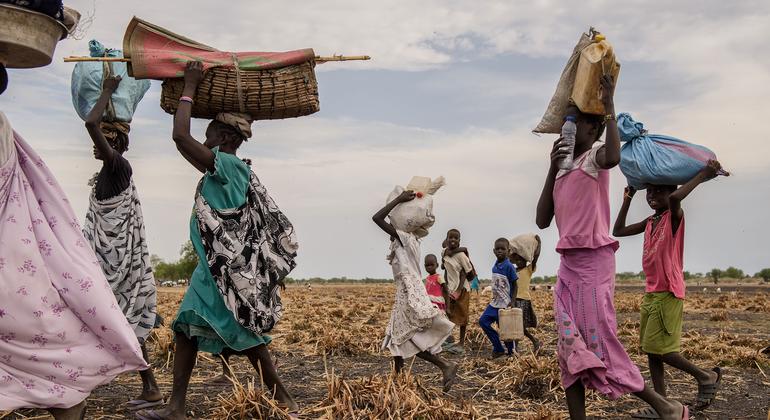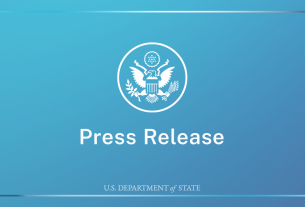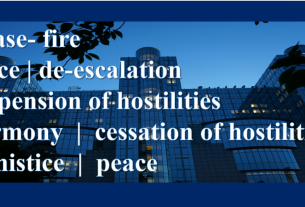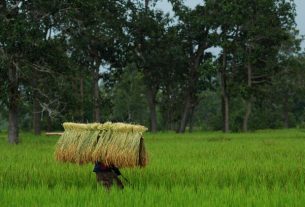Interconnected shocks have had a devastating impact on the most vulnerable, said the UN humanitarian office, OCHA.
“This funding will support reducing people’s vulnerability and protection risks through activities implemented by the United Nations humanitarian agencies in South Sudan”, stated Sara Beysolow Nyanti, Humanitarian Coordinator for South Sudan.
And it will ensure that the assistance reaches people in need “as quickly as possible”, she added.
New allocation
The International Organization for Migration (IOM), UN Children’s Fund (UNICEF), World Food Programme (WFP) and World Health Organization (WHO) are among the implementing agencies that will target those with the highest severity of needs.
Some people have undergone multiple shocks, which have led to secondary and tertiary displacements – triggering further protection risks and livelihood losses.
Benefitting from the newly allocated humanitarian funding will be people in the Unity, Upper Nile, Northern Bhar el Ghazel, Jonglei and Warrap states as well as in the Abyei Administrative Area.
Prioritizing the most needy
The funding will be used to help scale up existing cash programmes in providing life-saving services for those most in need, including protection, health, education, water, and sanitation.
Among the internally displaced and host communities, the senior UN official emphasized the importance of prioritizing those with the most acute needs.
“Women, girls, the elderly, persons with specific needs, and those who stayed behind in hard-to-reach areas due to mobility constraints, often bear the brunt of protracted crises and desperately need support”, she explained.
Fund breakdown
Critical humanitarian needs were identified in consultation with several coordination forums and national non-Governmental organization.
To promote localization and Grand Bargain commitments, at least 15 per cent of the funds will be allocated to national NGOs including women- led organizations who are partners of the receiving UN system members.
The funded projects will mainstream protection, gender and inclusion sensitivity, and collective efforts for accountability to the affected population in the response.
“People are going through unimaginable suffering. We cannot leave behind the most vulnerable”, Ms. Nyanti said.
Rapid relief
Since its establishment 16 years ago, CERF has provided fast emergency funding to people in need.
This year alone, it allocated $54 million for humanitarian projects in South Sudan, including the latest $14 million allocation for underfunded emergencies.
Women divide up sacks of cereals during a food distribution in South Sudan.
Earlier in the year, it provided $15 million to mitigate the impact of projected floods in Unity State; $10 million to respond to people impacted by violence in Abyei Administrative Area and Twic county; and $15 million to address increasing food insecurity in Jonglei and Unity states.
Humanitarians under fire
Yet, South Sudan’s humanitarian crisis has been underfunded across all interventions leaving millions of people at risk.
An estimated 9.4 million of the most vulnerable South Sudanese will need urgent life-saving assistance and protection next year – compared to this year’s 8.9 million.
As of 13 December, the 2022 Humanitarian Response Plan was funded at 67.3 per cent
“We need long-term solutions to close the rising funding gaps and pave the way towards development”, the Humanitarian Coordinator attested.
At the same time, the country continues to be the most violent for aid workers, according to OCHA, which said that since the beginning of this year, nine humanitarians were killed in the line of duty in South Sudan.



